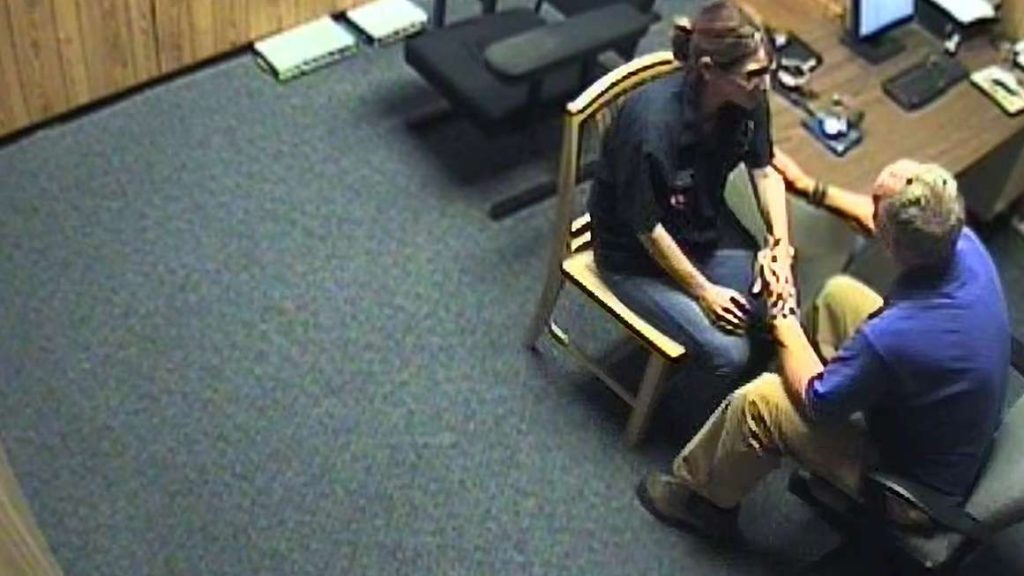Consider the following hypothetical: You are jailed for two years as you await trial for murder. You are facing the death penalty. You have cancer, which had been in remission until you were incarcerated without proper treatment and monitoring. And, it turns out, you were charged based on a false witness statement, a fact that the local prosecutor allegedly encouraged the destruction of evidence to obscure.
Now imagine suing that prosecutor and being told you have no recourse because such government employees are entitled to absolute immunity.
That is, unfortunately, not a hypothetical. It describes the case surrounding Nickie Miller, a Kentucky man who was implicated in a bizarre murder plot by a woman to whom the government had offered a deal to avoid prison time. That witness, Natasha Martin, almost immediately sought to recant. Law enforcement wouldn’t accept that. She testified before a grand jury, and then she tried to recant again, writing in jailhouse letters that her statement came in response to “coercive interrogation techniques, threats, and undisclosed promises of consideration.”
The story will fly under the radar. It shouldn’t.
Nickie Miller was jailed for 2 years for a murder he didn’t commit—in part because a prosecutor reportedly ordered a witness to destroy evidence of Miller’s innocence.
Miller had cancer. It was in remission, but it relapsed… https://t.co/UNFEKAPTc4
— Billy Binion (@billybinion) July 3, 2024
When Miller’s defense team caught wind of those letters, it obtained a court order for them. Martin asked Assistant Commonwealth Attorney Keith Craycraft how she should comply, to which he allegedly responded that she should destroy the correspondence. She did. (Craycraft acknowledges he spoke with Martin by phone after the court order but denies telling her to destroy evidence.)
The state eventually dropped the charges against Miller. His two years in jail, however, took a toll, according to his criminal defense attorney, who said Miller’s cancer was in remission but recurred after the state locked him up, as he could not access his medication.
Following his release, Miller sued Craycraft. The district court concluded Craycraft was entitled to absolute immunity. The U.S. Court of Appeals for the 6th Circuit subsequently noted that Craycraft’s alleged chicanery was “difficult to justify and seemingly unbecoming of an official entrusted with enforcing the criminal law.” But that court went ahead and ratified the grant of absolute immunity anyway—a testament to the malfeasance the doctrine permits.
Core to the decision, and to similar rulings, is Imbler v. Pachtman (1976), the precedent in which the Supreme Court created the doctrine of absolute prosecutorial immunity. The Court ruled that a man who had spent years in prison for murder could not sue a prosecutor who allegedly withheld evidence that eventually exonerated him.
Plaintiffs’ only way around this doctrine is proving that a prosecutor committed misconduct outside the scope of his prosecutorial duties. It’s a difficult task. Louisiana woman Priscilla Lefebure sued local prosecutor Samuel C. D’Aquilla after he sabotaged her rape case against his colleague Barrett Boeker, then an assistant warden at the Louisiana State Penitentiary in Angola.
Rather than present the grand jury with the results of a medical exam that found bruises, redness, and irritation on Lefebure’s legs, arms, and cervix, D’Aquilla offered a police report with his own handwritten notes, aiming to highlight discrepancies in her story. He also declined to call as witnesses the case’s two investigators, the nurse who administered Lefebure’s rape kit, or the coroner who stored it. He even refused to meet or speak with Lefebure at all, telling local news outlets doing so made him “uncomfortable.”
Judge Shelly D. Dick of the U.S. District Court for the Middle District of Louisiana concluded that some of D’Aquilla’s actions were more accurately classified as “investigative functions” as opposed to prosecutorial functions, so absolute immunity didn’t apply. The unusual victory was short-lived. The U.S. Court of Appeals for the 5th Circuit later overturned Dick’s decision, ruling that Lefebure didn’t have standing. The Supreme Court declined to hear her case.
Miller’s case met a similar ending. “Craycraft’s alleged misconduct of advising a witness to destroy evidence to thwart a court order is stunning,” wrote Justice Sonia Sotomayor. “If this is what absolute prosecutorial immunity protects, the Court may need to step in to ensure that the doctrine does not exceed its ‘quite sparing’ bounds.” The Court rejected his petition.
It’s possible Craycraft would have been vindicated by a jury. Miller will never get the chance to ask one, though, as he passed away during the litigation attempting to vindicate his rights against prosecutorial misconduct.
The post A Prosecutor Allegedly Told a Witness To Destroy Evidence. He Can’t Be Sued for It. appeared first on Reason.com.







